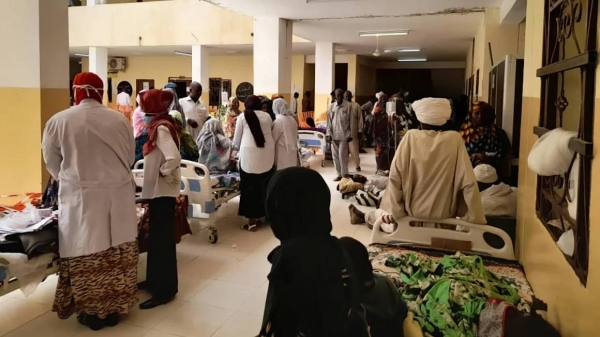
Houthis started digging trenches, building barricades and dispersing fighters near civilians’ regions such as towns, hospitals and hotels in Hodeida, west Yemen. This pushed Doctors Without Borders (MSF) to express concerns towards these attitudes that led to a damage in the water network and people are now suffering from a water shortage.
MSF statement said that, "One of our major concerns is that fighting inside the city center could turn Hodeidah into a besieged city, with civilians caught inside. The trenches and barricades, as well as the ongoing fighting, are making it more and more dangerous for civilians to move around, even with ambulances. Cases of people injured by landmines with no ambulance able to reach them were also reported to us. MSF is worried that basic access to health facilities, such as emergency rooms and maternity or pediatric wards, will become even more limited for communities already affected by more than three years of war."
It added, "Most of Yemen’s imports, including humanitarian aid, pass through the Hodeidah port. This makes it a vital lifeline for Yemenis living in the northern parts of the country, as well as for continued humanitarian assistance. At the moment, the port is operational, but if it was closed or damaged during the fighting, this would have a large impact on humanitarian operations and on prices for vital commodities, such as food and fuel."
It is very difficult to assess the situation, as we don’t have MSF staff inside Hodeidah yet. But Yemeni medical staff we work with have reported airstrikes and shelling inside the city, and people have started stockpiling food and fuel, MSF program manager Caroline Seguin explains.
"MSF teams are helping hospitals to treat war-wounded patients in Hodeidah city, Mocha city, and Far Al Udayn district, providing medical supplies and training to medical staff. In Hodeidah, MSF has sent medical equipment to Al Thawrah hospital, the main hospital in the governorate where 80 percent of Hodeidah residents are being treated. We are also going to set up a field hospital near Mocha, 180 kilometers [about 112 miles] south of Hodeidah. People we are working with have reported between 30 to 60 wounded patients arriving every day at Mocha hospital from the front lines. Sixty percent of them are emergencies," Seguin said.
Seguin said, "Our teams are responding to the influx of injured people from the Hodeidah and Taiz front lines at the MSF hospital in Aden. They are now increasing the facility’s capacity from 80 to 110 beds, with additional tents that will allow more patients to be treated. Since the clashes began in May 2018 the hospital has operated at full capacity and more than 150 patients from the front lines have been treated. Among these patients, 15 percent are children and teenagers under 15."
Witnesses from Hodeida affirmed to Asharq Al-Awsat that the Houthi group prohibited immigration to regions ruled by the legitimacy, and obliged hundreds to return to regions controlled by the group.










